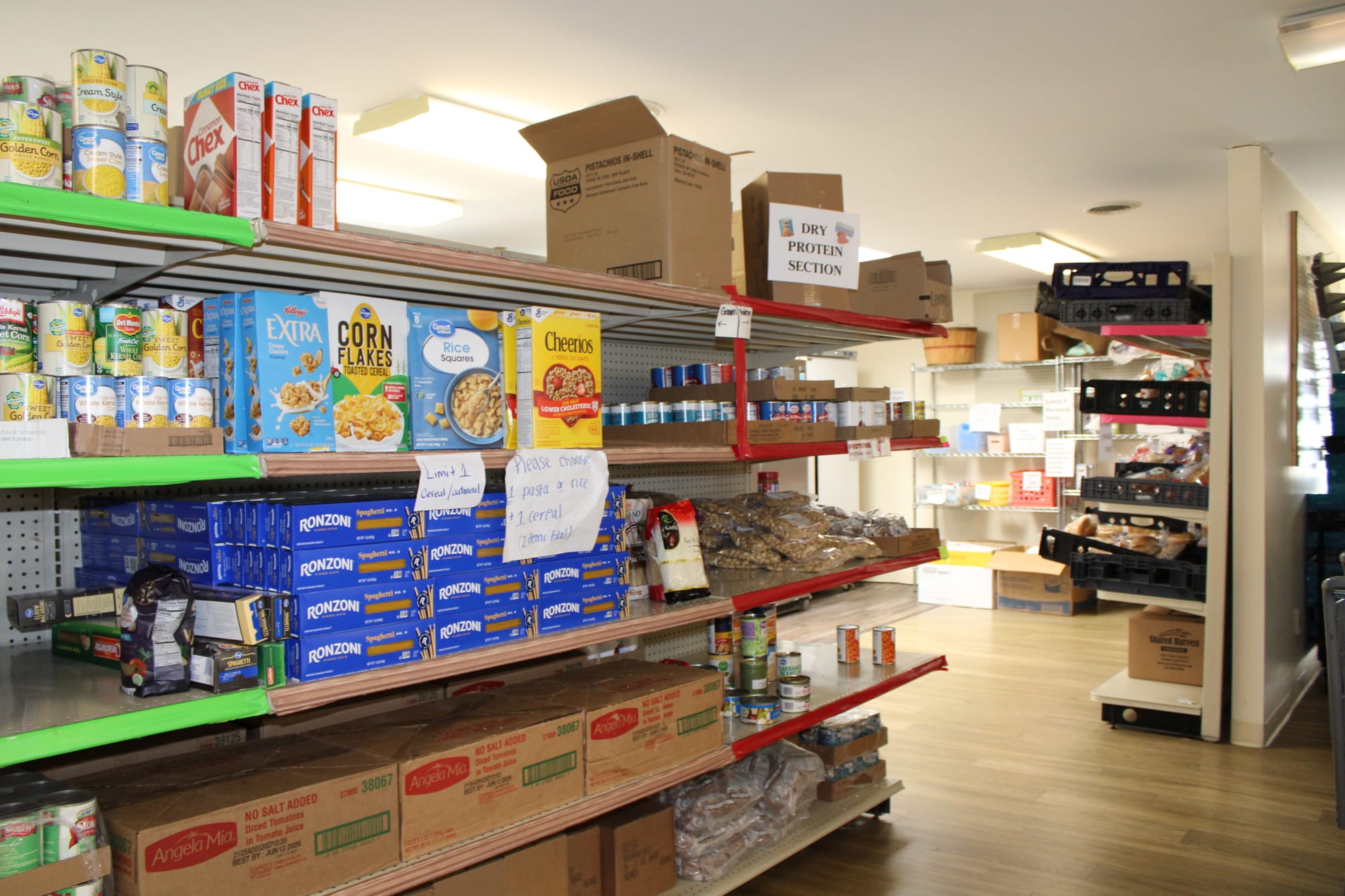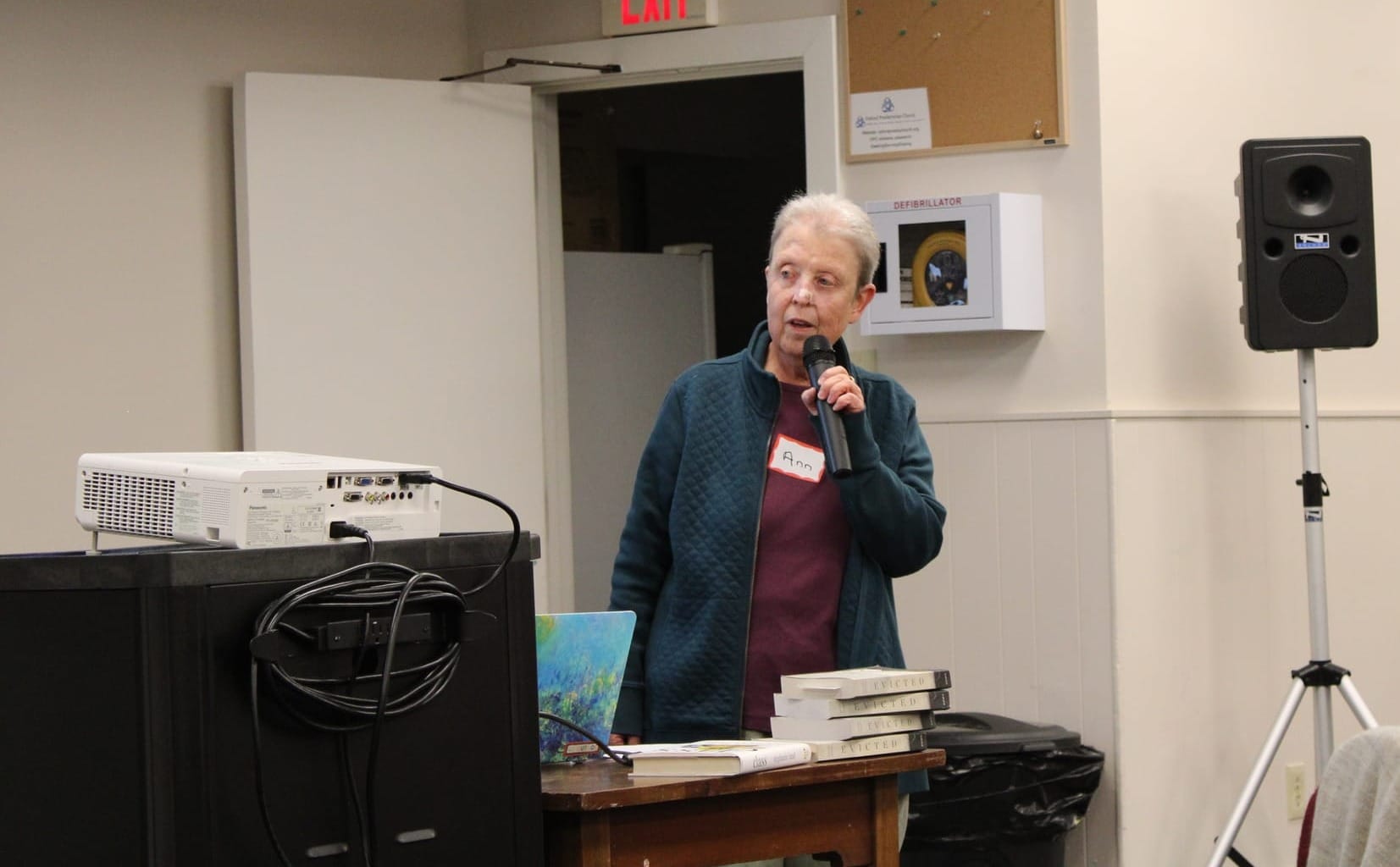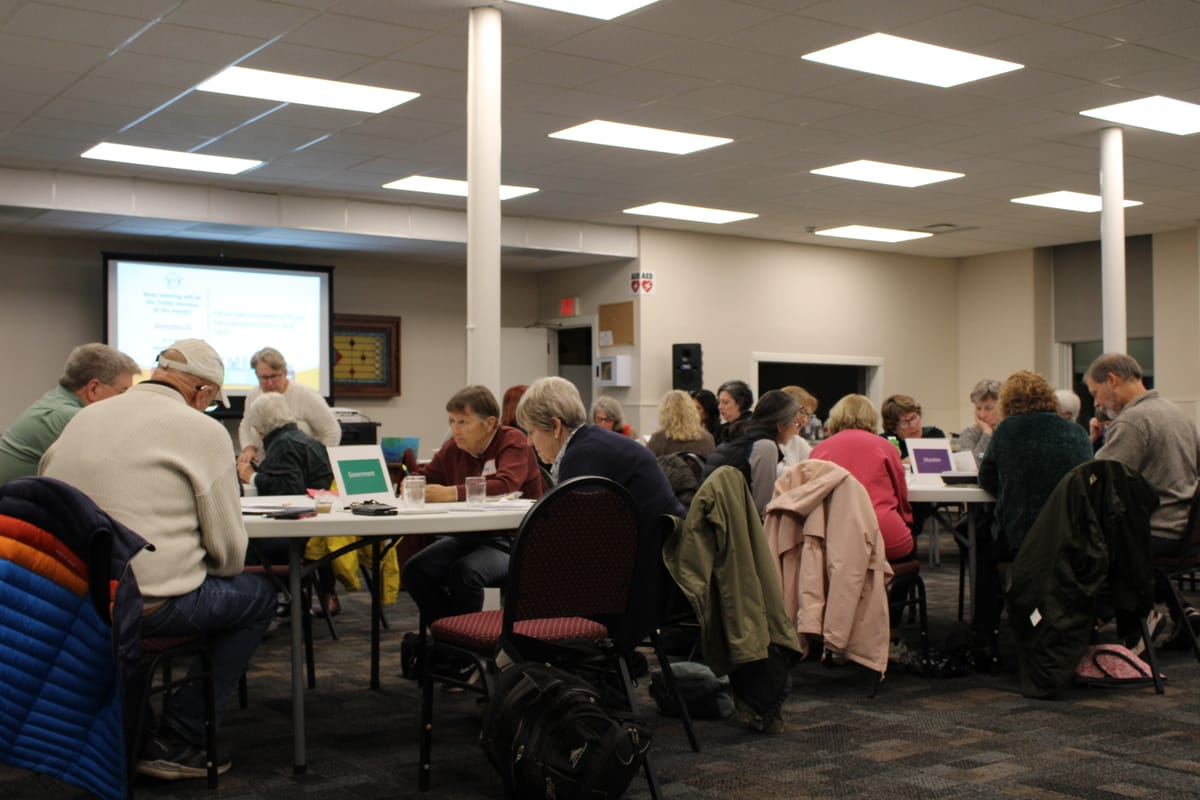Since forming less than two years ago, Oxford Area Solutions for Housing has attracted more than 100 residents from across various sectors with its mission to end housing insecurity in Oxford.
A mother of four children under 15 years old wanted to support her children with a better paying job. She was a full-time college student and a victim of domestic violence. She and her children relied on a social service agency to afford living in a motel — and that meant she was homeless.
A man in his early 40s camped out with his partner in a tent on wooded private property. He’d been homeless for more than three years and struggled with chronic health issues, mental and physical.
A man in his late 50s moved from couch to couch, including one that belonged to his adult child. The man was going through chemotherapy and dealing with a mental health condition related to early trauma.
These are the stories volunteers heard last January as Oxford took part in its first-ever Point-in-Time (PIT) Count of the city’s unhoused population. The effort was led by Oxford Area Solutions for Housing (OASH), a nonprofit organization that formed in 2023 to address homelessness. The first PIT Count found 96 people in town experiencing homelessness.
For Ann Fuehrer, a founding board member for OASH and former Executive Director for the Talawanda-Oxford Pantry and Social Services (TOPSS), Oxford’s unhoused population is just one part of a broader socioeconomic divide in town.
“People don’t notice that there’s a mobile home park that’s a mile long behind O’Reilly’s and the Butler Inn … People know about [Parkview Arms Apartments], but it’s willful ignorance,” Fuehrer said. “It’s people living in their privileged bubbles.”
Since forming, OASH has brought together more than 100 community members across a variety of sectors — faith, business, service, property ownership and more — to address the city’s housing needs. After completing its first successful count of the town’s homeless population early this year, the organization is looking forward to future projects and additional counts to build on its current momentum.
Oxford’s low-income community

Sherry Martin is the Executive Director of TOPSS. This November, she says the organization provided food to almost exactly 500 clients within the Talawanda School District during Thanksgiving week.
In 2022, TOPSS served 698 households. That number swelled to more than 1,000 in 2023, and the total number of households served so far this year is already above 1,350. Martin said they serve new clients every time the pantry is open.
“A lot of services have so many hoops to jump through that people who need them don’t necessarily get them,” Martin said. “My goal has been to lessen the barriers and increase access.”
Earlier this year, TOPSS merged with the Family Resource Center, and now it operates as one organization under the umbrella of TOPSS. Beyond the pantry, TOPSS offers other forms of aid to people with household incomes of less than 125% of the federal poverty guidelines, which amounts to $39,000 for a family of four.
Martin has met and served many unhoused people in Oxford, and she helped lead the PIT Count last year. As a familiar face, she was able to lead the volunteers to several camps around town and introduce them to the people living outdoors. Homelessness encompasses more than just people living outside, though.
The Department of Housing and Urban Development (HUD) defines homelessness as lacking “a fixed, regular, and adequate nighttime residence.” The McKinney-Vento definition, which Talawanda uses, includes children who share houses with other people due to loss of housing, living in motels, hotels, trailer parks or camping grounds due to lack of accommodations, living in emergency or transitional shelters, cars, parks, public spaces or similar settings. Just over half of the 60 people in the PIT Count who fit the HUD definition reported sleeping in vehicles or with family or friends.
Martin said housing insecurity can be difficult to spot in Oxford, particularly because people with different economic statuses don’t always have a chance to interact.
Nicola Rodrigues, director of social services at TOPSS, serves on Oxford’s Housing Advisory Commission. She said progress on housing initiatives can often feel slow because it’s a complex issue, and organizations can’t force help on people who don’t want it. While Oxford does list housing as a top priority, Rodrigues said projects to help vulnerable people often take years to come to fruition.
“Demands far outweigh resources,” Rodrigues said. “I know we should all be trying to do the best of what we can do, and I think we are.”
For OASH, that progress in the past two years has taken the form of building a coalition to put more attention on housing needs in the community.
A multifaceted approach
On one Monday each month, dozens of Oxford residents filter into the Presbyterian Church Seminary Building. They arrange themselves in tables based on sector: education, faith-based, philanthropy and civic, economy and business, government, and human services.
Each sector has its own goals — during the November meeting, for example, one group focused primarily on coordinating the city’s next PIT Count scheduled for January. The meetings start off with a broad discussion led by one of the founding board members — Fuehrer, Jennifer Bailer, Diane Ruther-Vierling and Anne Bailey — before moving into sector work.
Now that OASH has one PIT Count under its belt, members are looking for ways to address Oxford’s housing needs. The primary focus for the board right now is permanent supportive housing, a model which focuses on providing both affordable housing and support services including case management, medical care, mental health and addiction services and more.
During OASH’s November meeting, Bailer said the organization is in the early stages of creating a proposal for a permanent supportive housing development in Oxford. The project would be years away even if OASH manages to secure land and funding for it, Bailer said.
The most comparable project nearby is Goodman Place, a permanent supportive housing apartment complex operated by the YWCA in Hamilton. The building includes 45 apartments and offers residential care, independent living skills training, counseling and more.
The organization also relies on outreach to connect with as many community members as possible. Last month, board member Jenny Bailer spoke at a League of Women Voters meeting about the organization’s mission.
Anne Bailey, one of the founding board members, is an elder in the Oxford Presbyterian Church. When the church became a Matthew 25 congregation five years ago, it chose eradicating systemic poverty as its mission, and Bailey volunteered to be the team leader.
“I believe that the church has an important role to play in the community in serving all people, not just the people who sit in the pews inside the church on Sunday morning,” Bailey said. “... That’s why I’m especially glad that we’ve branched out a little bit and are involving a lot of people in what we do.”
OASH is a secular organization, but Bailey said it’s been gratifying to see people from a variety of local churches get involved. The members of OASH are also aware of the unique challenges posed by Oxford’s college town status, particularly the incentives for property managers to rent to students whose parents may have higher incomes than locals.
Changing attitudes about housing

As OASH considers large-scale housing solutions, some of its members and other organizations are looking for other ways to help, too.
Fuehrer has focused her own efforts recently into talking about how to turn not in my backyard (NIMBY) attitudes into yes in my backyard (YIMBY) attitudes. NIMBY refers to people who oppose community projects such as low-income housing developments near their properties. If Oxford is serious about combatting housing insecurity and other social issues, Fuehrer says, more people need to get comfortable with the idea of having neighborhoods with mixed socioeconomic backgrounds.
Fuehrer also wants OASH’s work to extend beyond the people with the most immediate housing needs. A 2020 housing needs assessment by Bowen National Research found that more than half of non-student residents in Oxford were housing cost burdened, meaning that more than 30% of their income went toward housing.
“There’s more of an emphasis now on housing because it’s affecting everybody,” Fuehrer said. “Lots of people are losing their mortgages or can’t find affordable housing … Those values affect everybody.”
For Bailey, one of the most immediate priorities is to establish a more permanent warming shelter for Oxford. TOPSS and the city have partnered for several years to rent motel rooms for people who need immediate shelter on cold nights, but she envisions something bigger. In the summer months, Oxford Lane Library acts as a cooling station, but that doesn’t function overnight, and Bailey would like to see more cooling options as temperatures increase.
Emily Liechty, executive director of Oxford Seniors, helped coordinate last year’s PIT Count and has stayed involved with OASH since then. She regularly hears from older residents in town who struggle with housing, particularly downsizing to affordable and accessible homes. While they may not be at risk of homelessness, Liechty sees their concerns as something that OASH could help the city address in the long-term.
“Because of reduced housing stock, [older adults] can’t sell this valuable house and find something else that would work better,” Liechty said. “They’re seeing that it’s a more layered issue than just, ‘This person on the street can’t afford a house,’ and I think that creates understanding and empathy.”
OASH’s next meeting is scheduled for 5-7 p.m., Dec. 16 in the Presbyterian Seminary Building and is open to the public.





